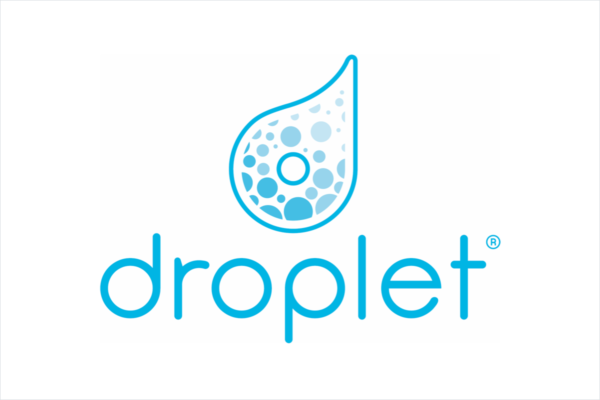Droplet

The challenge
There are almost four million[1] vulnerable people currently living in the community, often alone, who are at serious risk of dehydration. Dehydration results in emergency hospital admissions, poor clinical outcomes and extended stays in hospital, and emergency readmissions following discharge.
Existing strategies to promote better hydration only really exist within a clinical environment. However, maintaining adequate hydration remains a challenge. The most effective intervention is through personal prompting, but in busy hospital wards this is often impossible to do effectively and at home there is no current alternative.
The solution
Droplet is a smart hydration reminder, designed to combat dehydration in community-based and acute environments.
Droplet cups and tumblers have detachable electronic reminder bases. A series of spoken messages and flashing lights in the base remind the person to drink, and the timing of the reminders can be adjusted to suit the individual’s needs.
Droplet has been developed in consultation with over 100 healthcare professionals and older people. Pilots in care homes and hospitals has shown to increase fluid intakes by over 500ml per day.
The Droplet story can be viewed here.
Droplet supports the crucial element of hydration for healthcare professionals to monitor, manage and improve patients’ fluid intake. This is why at Musgrove Park we are introducing Droplet in every ward.
Phil Shelley, Former National Chair of the Hospital Caterers Association
The impact
Where Droplet is currently used in hospitals and care homes, the following benefits have been consistently observed:
- Patients/residents drink more per day.
- Illnesses and symptoms relating to dehydration reduced.
- Decreased number of patients at risk of dehydration.
- Improved wellbeing.
- Reduction in prescriptions for IVs and antibiotics to treat UTIs and similar infections.
- At Musgrove Park Hospital, Droplet users drank on average 63% more than those without.
- A pilot at Polebrook Nursing Home reported average fluid intake rose by 69% with 61% drinking their EFSA (European Food Safety Authority) recommended daily intake.